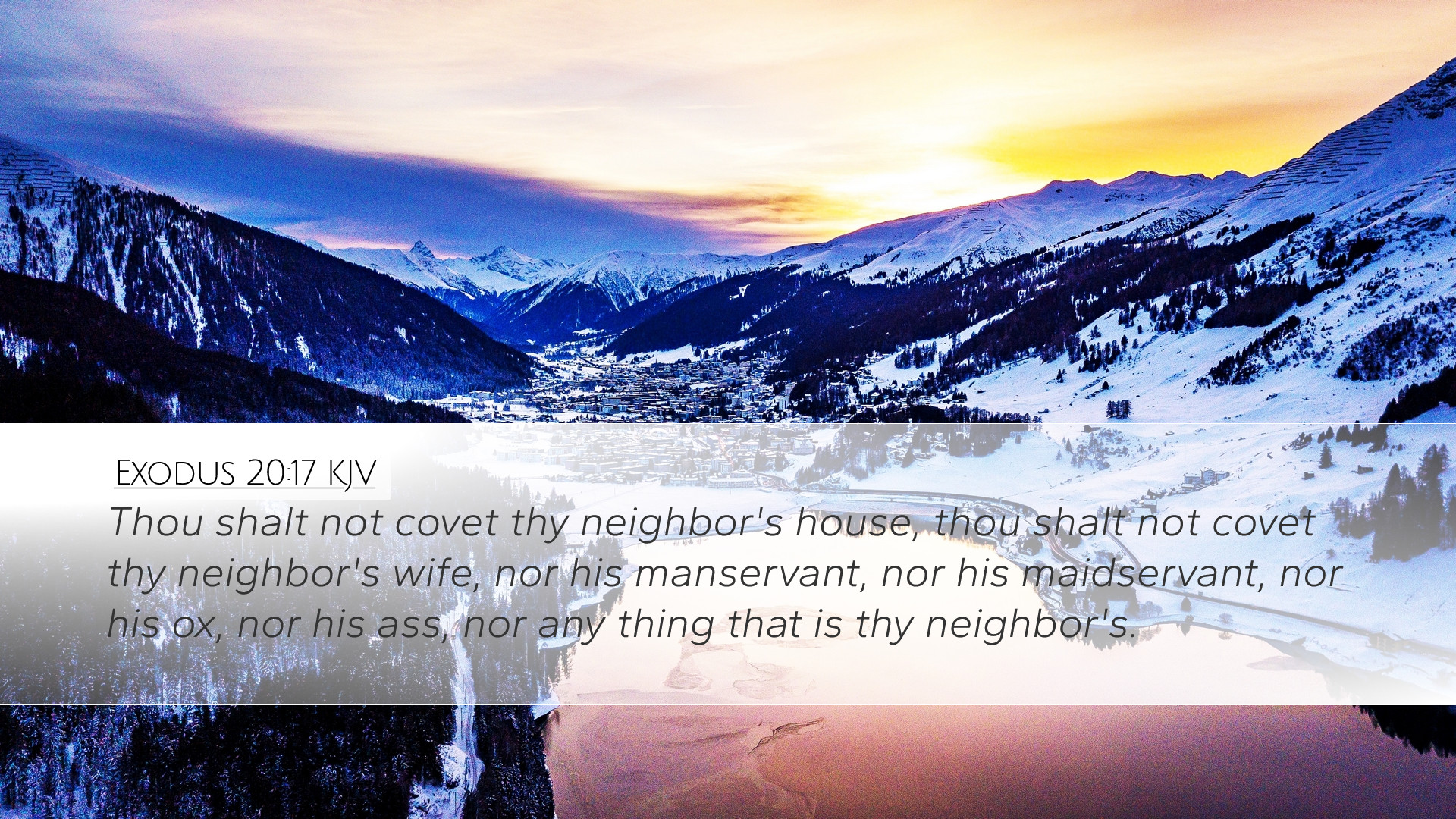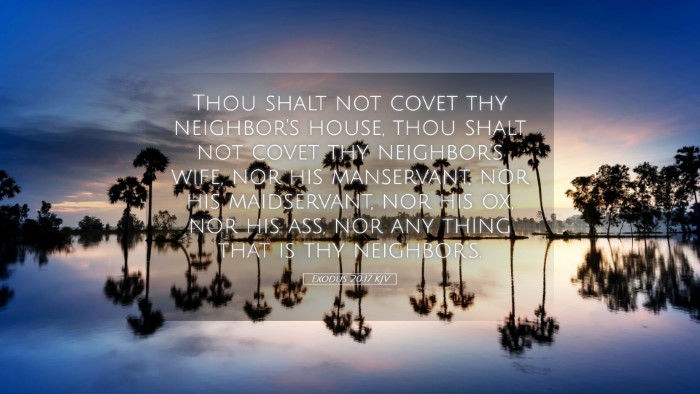Commentary on Exodus 20:17
“You shall not covet your neighbor's house; you shall not covet your neighbor's wife, or his male servant, or his female servant, or his ox, or his donkey, or anything that belongs to your neighbor.”
Introduction
The tenth commandment encapsulates the essence of desire and its implications for human relationships and society at large. It stands as a poignant reminder of the inner struggles humans face and their moral responsibilities towards one another. This command distinguishes itself from the others by focusing on the thoughts and intentions of the heart rather than overt actions.
Exegesis of Exodus 20:17
According to Matthew Henry, this commandment addresses the root of sin, which often begins within the mind and heart. Coveting is not merely a passive feeling; it is an active desire that seeks to possess what rightfully belongs to another. The command delineates a comprehensive scope of covetousness, encompassing not only property but also relationships and personal belongings, reinforcing the interconnected nature of these desires.
The Nature of Coveting
Coveting is rooted in discontent and an ungrateful heart. Albert Barnes notes that the command explicitly references 'your neighbor's house' and 'wife,' highlighting the sanctity of personal relationships and the possessions that contribute to one's domestic life. By wishing for what belongs to others, one undermines the principle of love and respect designed to govern human interaction.
- Desire vs. Envy: Adam Clarke distinguishes between mere desire and harmful envy. While it is natural to admire the lives of others, envy leads to resentment and the destruction of communal harmony.
- Social Implications: The act of coveting has broader social consequences, as Barnes indicates, leading individuals to engage in actions that harm their neighbors, such as theft or betrayal, to fulfill their desires.
Theological Insights
From a theological perspective, the commandment encapsulates the nature of sin. It reveals that sin is not confined to actions but extends to thoughts and desires. Thus, it requires a deeper introspection and a sincere evaluation of one's heart. Henry illustrates that God's law requires purity not just in deed, but in thought, reflecting the holiness of God himself.
Responses to Coveting
Pastors and theologians may consider the implications of this commandment in their teachings, urging believers to cultivate contentment and gratitude. Responses to coveting can include:
- Gratitude: Engaging in a practice of thanksgiving helps believers to focus on what they have rather than what they lack, thus counteracting the desire to covet.
- Accountability: Establishing relationships within the community where individuals can openly discuss their struggles with covetousness can create a support system for spiritual growth.
- Focus on God: Redirecting desires toward God and His will fosters a spirit of peace and fulfillment that diminishes the temptation to covet.
Application for Modern Believers
In the contemporary world, where consumerism and materialism often dominate values, the relevance of Exodus 20:17 is immediate. The pervasive culture of comparing oneself with others can lead to an overwhelming sense of dissatisfaction. Clarke emphasizes the importance of internalizing the commandment as a guard against the relentless pursuit of 'more,' advocating a life grounded in biblical contentment.
The Role of the Church
The church plays a crucial role in addressing the issues of coveting in its congregants. Through biblical teaching, encouragement towards personal accountability, and fostering an atmosphere of love and support, the body of Christ can counteract societal pressures that encourage covetousness.
Conclusion
Exodus 20:17 serves as a profound reminder of the complexities of human desire and the moral imperatives that govern it. By addressing the hidden motivations of our hearts, it challenges believers to strive for not just righteous actions but pure intentions. In doing so, it transforms both individual lives and the community at large, fostering an environment of respect, love, and mutual support among all members.


